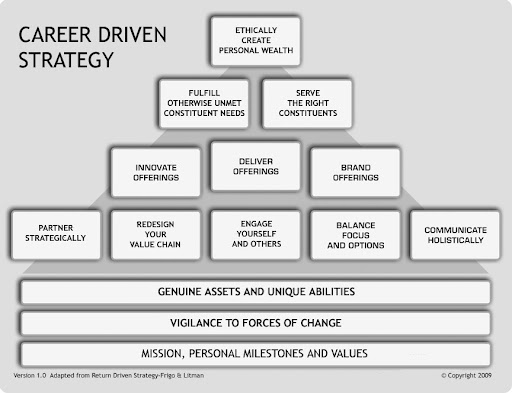Rebrands can cost millions of dollars if they go wrong. That’s exactly what happened to this legacy chain…
|
|
| For today’s article, we’re going to talk about rebrands and how they can be damaging to a brand’s identity when target customers reject such moves. Curious? Keep reading below to know more! Rebrands can cost millions of dollars if they go wrong. That’s exactly what happened to this legacy chain… Millions of Americans flock to their favorite restaurant chains each day to enjoy a meal by themselves or with their loved ones… and as a result, the food service industry has become a highly lucrative and competitive market, generating over USD 2.6 trillion in sales in 2024. That said, restaurants often operate on razor-thin margins, and have little room to maneuver when food costs rise due to inflation. Restaurant operations also require substantial labor, creating additional pressures that further squeeze profitability.
More importantly, restaurant profitability is highly dependent on attendance. When consumers eat less, margins get squeezed further. In fact, U.S. restaurants experienced one of their weakest six-month sales growth periods in a decade during the first half of 2025. Given this backdrop, restaurant chains will do whatever they can to make sure their customers will continue to patronize their products. This can come in the form of special offers, time-limited menu items, and even discounted meals. However, aside from those avenues, restaurants will attempt to pull off rebrands in an attempt to retain customers, attract new ones, and consequently, improve profits. Rebrands can be a powerful tool to bring relevance to a once-great brand that’s starting to stagnate. But it must be pulled off the right way. Acting As A Bridge to Customers Professor Joel Litman and Dr. Mark L. Frigo in the book, “Driven,” talked about the importance of branding. According to them, “successful firms create a bridge between the customers’ knowledge of the offering and their explicit awareness of their unmet need.” Branding activities, when done right, builds an emotional connection between consumers and the offerings that uniquely fulfill their needs. That’s why no matter how many competitors come into the scene or no matter how much prices change, customers will continue to flock to a business that has successfully built a brand that forms emotional attachments and evokes positive memories with its target audience. Since branding is such a powerful business activity, once-great businesses often turn to it when they’re attempting to recapture their old glory. However, not every rebranding effort is guaranteed to succeed, and this legacy restaurant chain found that out the hard way. A Rebranding Effort Gone Wrong Earlier this year, Cracker Barrel, a Tennessee-based restaurant chain, made headlines for all the wrong reasons as it lost nearly USD 100 million in market value after it earned the ire of investors and even long-time patrons. The controversy stemmed from the release of a redesigned logo.
Cracker Barrel created a unique brand image by adopting an old country-inspired identity, reflected in vintage decor, home cooking-inspired dishes, and a logo depicting a sitting gentleman leaning against a barrel. Since 2023, Cracker Barrel’s leadership has been pursuing a transformation of its business, and this has consequently led to attempts at shedding its rustic brand image to attract a younger audience. In remodeled restaurants, vintage decors have given way to a more modern atmosphere and the menu has been simplified and altered to accommodate seasonal offerings. The most recent move in Cracker Barrel’s ongoing brand refresh came in the form of a logo change that replaced the iconic barrel design with a cleaner, text-only design featuring its name. In response, long-time customers complained that the redesigned logo was a departure from the legacy chain’s “country roots,” while experts pointed out that a rebrand can damage brand identity and turn off long-time customers. Meanwhile, conservative pundits accused the company of turning its back on American values. The negative response immediately resulted in a nearly USD 94 million dollar drop in market value and a company-issued apology for the logo change, emphasizing that this change was part of a broader plan that’s expected to pay off by 2027. As a result of the negative backlash, the chain reverted its logo change completely, deciding to stick with its classic brand image. That’s not all… Weeks after it reverted its logo change, Cracker Barrel halted the remodelling plans for over 600 locations, as the initial plan to do so didn’t sit well with long-time customers. Rebrands Shouldn’t Alienate an Existing Customer Base Cracker Barrel’s rebranding efforts wasn’t an impulsive one, as it’s a business that has slowly declined throughout the 2020s so far. However, its efforts to reinvent and reinvigorate its business grabbed headlines for the wrong reasons and it was punished accordingly. The key takeaway? While transformations are essential to turning struggling businesses around, they cannot come at the cost of losing touch with long-time customers and abandoning the qualities that made a company a success in the first place. In today’s consumer landscape where brand identity is of utmost importance, the most effective transformations should focus on building up existing strengths rather than abandoning them entirely. — If you’re looking to gain a better understanding of Return Driven Strategy and Career Driven Strategy, we highly recommend checking out “Driven” by Professor Litman and Dr. Frigo. Click here to get your copy and learn how this framework can help you in your business strategies and ultimately, in ethically maximizing wealth for your firm. Hope you found this week’s insights interesting and helpful. Stay tuned for next Tuesday’s Return Driven Strategy! Starbucks, the world’s largest coffeehouse chain, has always placed a strong emphasis on ambiance. Learn more about these brands’ collaborative success through the lens of RDS’ 7th tenet in next week’s article! |

Miles Everson
CEO of MBO Partners and former Global Advisory and Consulting CEO at PwC, Everson has worked with many of the world's largest and most prominent organizations, specializing in executive management. He helps companies balance growth, reduce risk, maximize return, and excel in strategic business priorities.
He is a sought-after public speaker and contributor and has been a case study for success from Harvard Business School.
Everson is a Certified Public Accountant, a member of the American Institute of Certified Public Accountants and Minnesota Society of Certified Public Accountants. He graduated from St. Cloud State University with a B.S. in Accounting.





